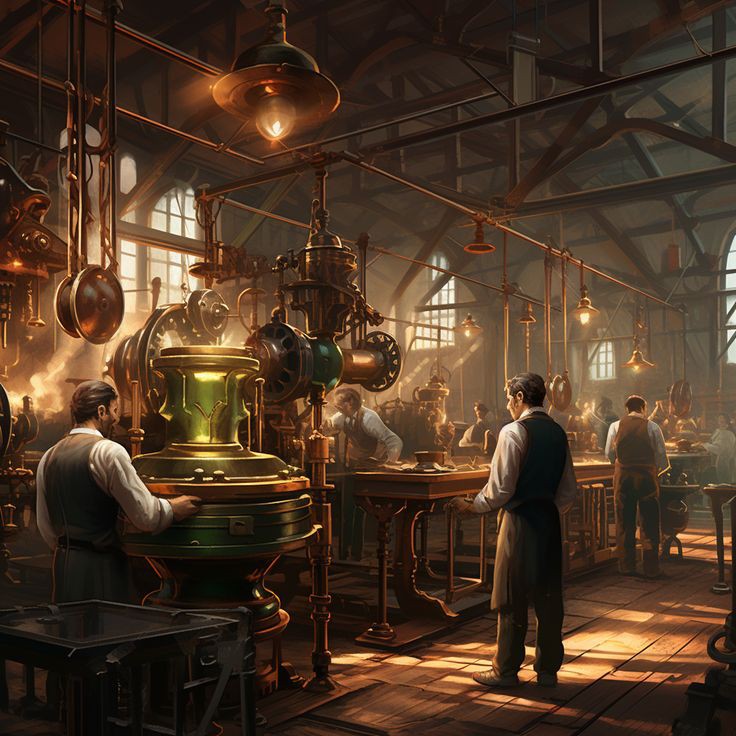The Industrial Revolution stands as one of the most transformative periods in human history, fundamentally altering society and laying the groundwork for modern industry. Spanning from the late 18th century to the early 19th century, this era was marked by groundbreaking innovations, economic shifts, and profound social changes. Understanding how the Industrial Revolution achieved this transformation provides valuable insights into the development of contemporary industrial practices and societal structures.
Catalysts of Change
The Industrial Revolution was driven by a confluence of factors, including advancements in technology, shifts in economic practices, and changes in societal norms. Innovations such as the steam engine, mechanized looms, and iron production techniques revolutionized how goods were manufactured. These technological advancements increased production speed and efficiency, enabling mass production and the growth of factories.
Economic Shifts
Prior to the Industrial Revolution, economies were predominantly agrarian, with goods produced through manual labor and traditional craftsmanship. The introduction of mechanized production methods shifted the economic landscape towards industrial capitalism. Factories became the new centers of production, leading to the rise of industrial cities. This urbanization created new job opportunities, attracting people from rural areas and contributing to the growth of a wage-based labor system.
Social Transformation
The societal impact of the Industrial Revolution was profound. As people moved to cities in search of work, urban populations swelled, leading to the development of new social classes. The burgeoning middle class, comprising factory owners, merchants, and professionals, gained economic and political influence. Conversely, the working class, which included factory laborers, faced challenging conditions, including long hours, low wages, and poor living conditions. These disparities highlighted the need for social reforms and workers’ rights, paving the way for labor movements and regulations.
Technological Innovations
Key technological innovations during the Industrial Revolution laid the foundation for modern industry. The steam engine, invented by James Watt, was instrumental in powering machinery and transportation. Mechanized textile production, exemplified by the spinning jenny and the power loom, drastically increased the efficiency of fabric manufacturing. The use of iron and steel in construction and machinery enhanced durability and performance, further advancing industrial capabilities.
Impact on Modern Industry
The legacy of the Industrial Revolution is evident in contemporary industrial practices. The principles of mass production, specialization, and mechanization introduced during this period continue to underpin modern manufacturing processes. Assembly lines, automation, and advanced machinery have their roots in the innovations of the Industrial Revolution. Furthermore, the development of transportation networks, such as railways and steamships, facilitated global trade and connectivity, shaping the modern economic landscape.
Environmental and Ethical Considerations
While the Industrial Revolution brought about significant progress, it also introduced environmental and ethical challenges. The reliance on coal as a primary energy source led to pollution and environmental degradation. The exploitation of labor, including child labor, highlighted the need for ethical considerations in industrial practices. These issues underscore the importance of sustainable and responsible approaches in modern industry, balancing progress with environmental stewardship and social responsibility.
The Industrial Revolution was a pivotal era that transformed society and shaped modern industry. Through technological innovations, economic shifts, and social changes, it laid the groundwork for contemporary industrial practices and societal structures. Understanding this period helps contextualize the development of modern industry and emphasizes the importance of balancing progress with ethical and environmental considerations. As we continue to innovate and advance, the lessons of the Industrial Revolution remain relevant, guiding us towards a more sustainable and equitable future.

